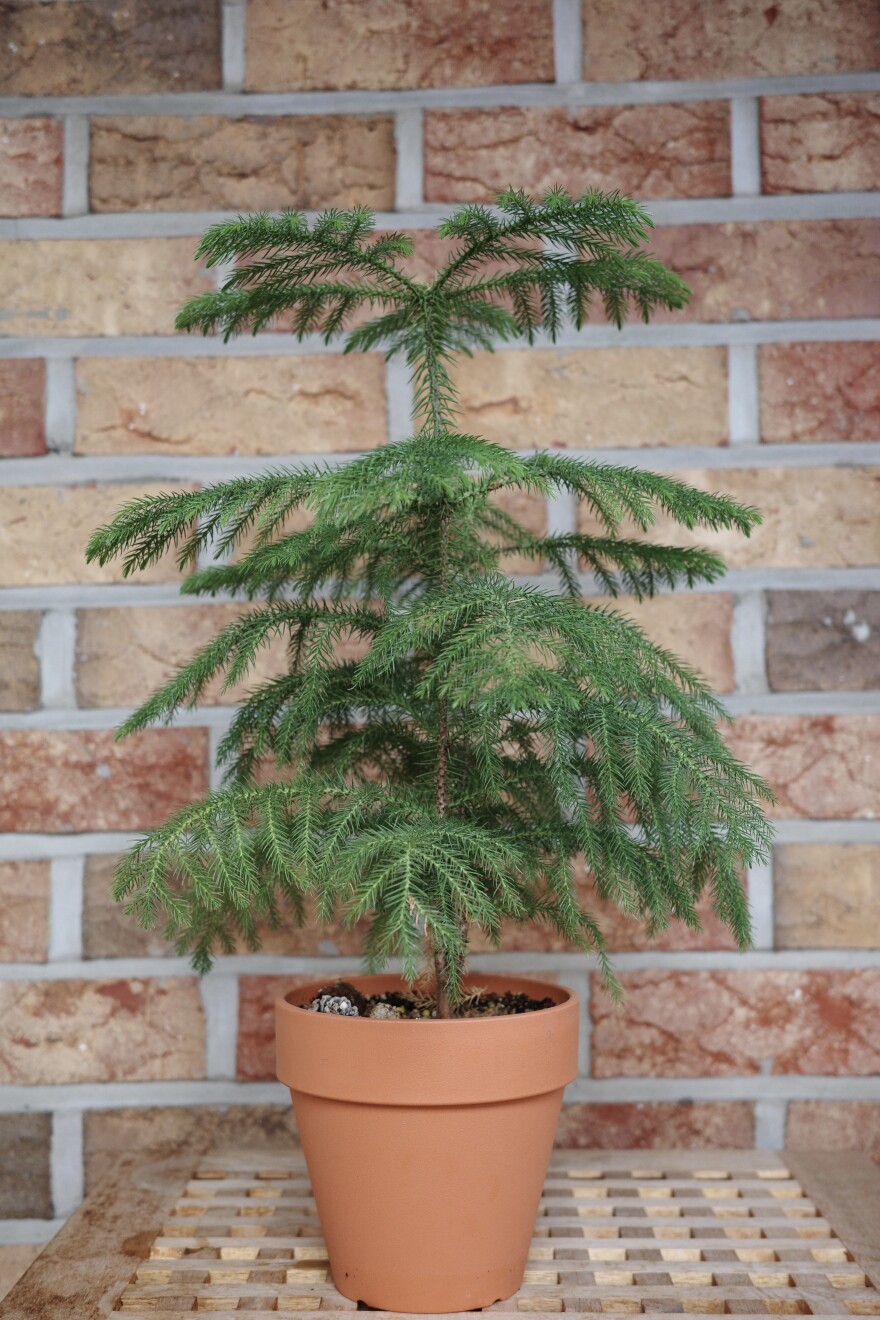If you celebrate winter holidays by decorating and displaying live trees in your home, you can also try several alternatives to the traditional large fir or balsam tree this year.
Want to know what to do with your tree after the holidays? Taking Down Your Tree? Feed It To A Colchester Goat
Certain potted plants can be dressed up for the holidays and are just as festive. And these plants can also last beyond the holidays and make fun substitutes for smaller spaces.
Norfolk Island pine: Though not a true pine, this is probably the best-known alternative to a regular fir or balsam live Christmas tree. Found easily in garden centers and nurseries, it's a beautiful house plant that grows well indoors in our neck of the woods.
When decorating, choose smaller and lighter ornaments so the branches aren't weighed down. And use LED lights so the needles don't heat up and dry out.
More ideas on how to upcycle your holiday tree Five things to do with your live Christmas tree after the holidays
Dracena marginata: This alternative holiday tree is also known as a dragon plant. Dracena makes a festive centerpiece or placed in a container in a small corner. This plant has woodier branches that can withstand heavy ornaments and lights.
Palm tree: Bring out your inner Floridian and decorate a table-top palm tree, like a sago palm or bamboo palm.
These small trees are found in garden centers or online and they will last as a beautiful house plant well beyond the holidays. String with tiny lights and small, lightweight ornaments to complete its holiday look.
Rosemary Tree: If you are a cook yourself or need to bring a hostess gift to a holiday party, this alternative tree even tastes good!
You can find rosemary plants that have been grown to mimic a triangular Christmas tree shape. Pick them up at local florists' shops, garden centers and even some grocery stores.
String some dainty lights and add some small bows. These potted tiny trees will make perfect centerpieces for your holiday table and add flavor to your holiday dishes.
European Cypress: Also called a lemon cypress, these potted plants are chartreuse colored and look a bit like a cedar tree. They're small and though they can't really grow well in our climate outdoors, they make a nice little indoor tree.
Q: My spring flowering bulbs were recently starting to emerge from the soil and it's cold! What do I do to protect them? - Beth, via email
A: All fall, we experienced unusually warm temperatures, which caused many bulbs like tulips, daffodils and garlic to begin to bud.
Any early growth from your spring bulbs is most likely buried in heavy snow right now, after the recent winter storm. And that's a good thing!
At the moment, this heavy layer of snow will be a great insulator. But if the snow melts and you can see the new growth from your bulbs again, just drop a layer of hay or chopped leaves to cover it up. The bulbs will be just fine and come spring, you'll have a beautiful flowering bulb display.
All Things Gardening is powered by you, the listener! Send your gardening questions and conundrums and Charlie may answer them in upcoming episodes.
You can also leave a voicemail with your gardening question by calling Vermont Public at 1-800-639-2192.
Hear All Things Gardening during Weekend Edition with Vermont Public host Mary Williams Engisch, Sunday mornings at 9:35.
Have questions, comments or tips? Send us a message or get in touch by tweeting us @vermontpublic. We've closed our comments. Read about ways to get in touch here.







